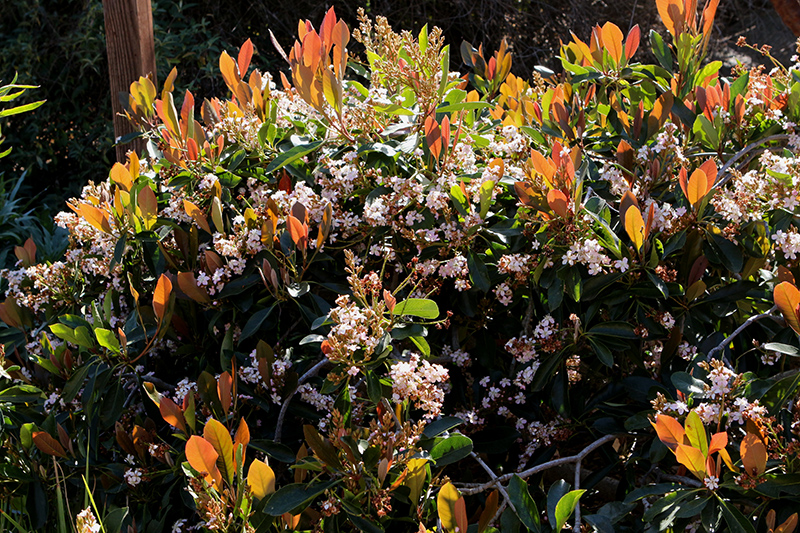Plant Finder
Height: 20 feet
Spread: 20 feet
Sunlight:
![]()
![]()
Hardiness Zone: 7b
Other Names: Eriobotrya deflexa x Rhaphiolepis indica
Description:
A large evergreen shrub or small tree that produces clusters of soft pink flowers in spring; bright reddish-orange new foliage matures to a deep glossy green; maroon winter foliage; an excellent accent tree, or screen; shown to be leaf spot resistant
Ornamental Features
Coppertone Loquat features showy clusters of fragrant shell pink flowers with white overtones at the ends of the branches from late winter to early spring. It has attractive dark green evergreen foliage which emerges red in spring. The glossy oval leaves are highly ornamental and remain dark green throughout the winter.
Landscape Attributes
Coppertone Loquat is a multi-stemmed evergreen tree with an upright spreading habit of growth. Its average texture blends into the landscape, but can be balanced by one or two finer or coarser trees or shrubs for an effective composition.
This is a relatively low maintenance tree, and should only be pruned after flowering to avoid removing any of the current season's flowers. It is a good choice for attracting bees and butterflies to your yard. It has no significant negative characteristics.
Coppertone Loquat is recommended for the following landscape applications;
- Accent
- Hedges/Screening
- General Garden Use
Planting & Growing
Coppertone Loquat will grow to be about 20 feet tall at maturity, with a spread of 20 feet. It has a low canopy with a typical clearance of 2 feet from the ground, and is suitable for planting under power lines. It grows at a medium rate, and under ideal conditions can be expected to live for approximately 20 years.
This tree does best in full sun to partial shade. It prefers to grow in average to moist conditions, and shouldn't be allowed to dry out. It is not particular as to soil type or pH. It is somewhat tolerant of urban pollution. This particular variety is an interspecific hybrid.




